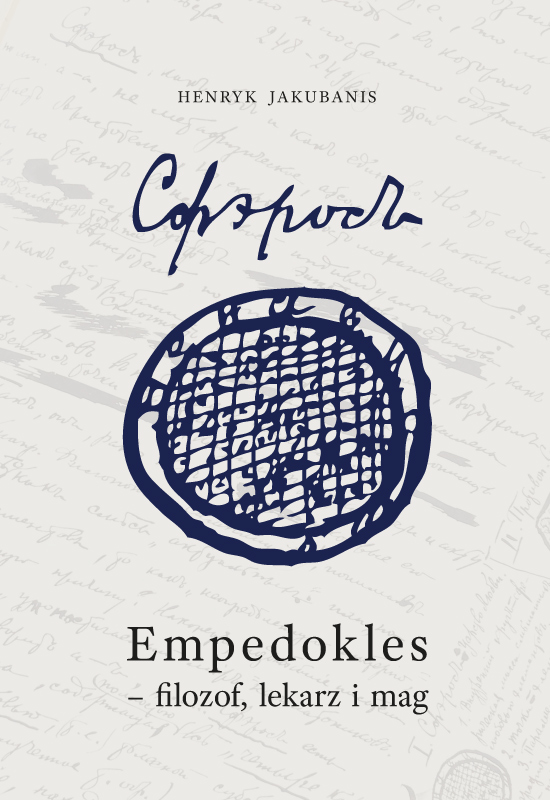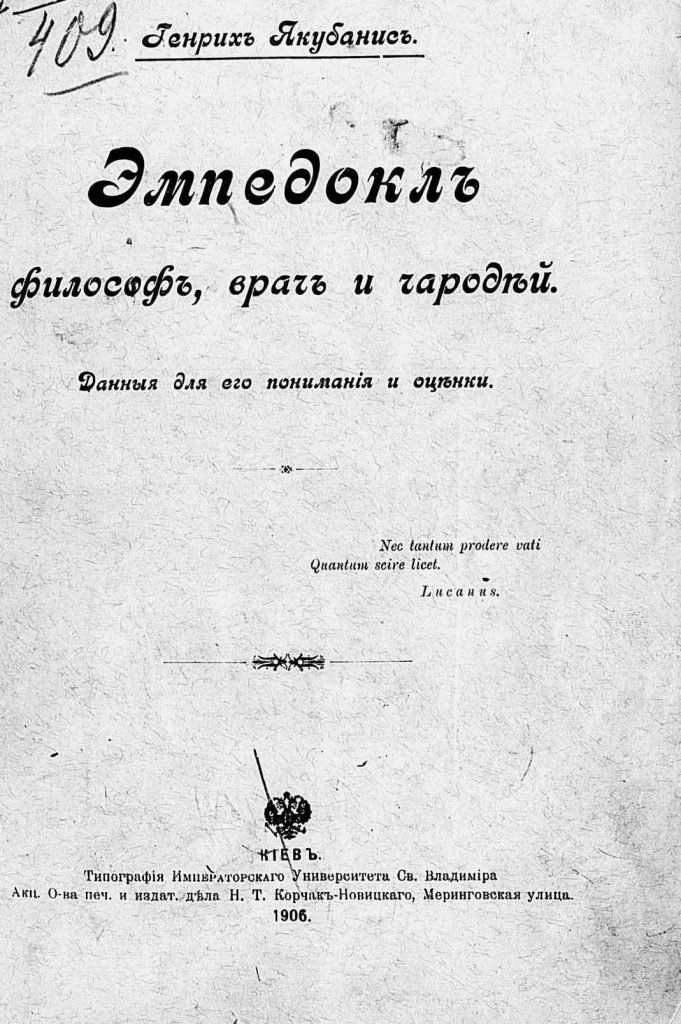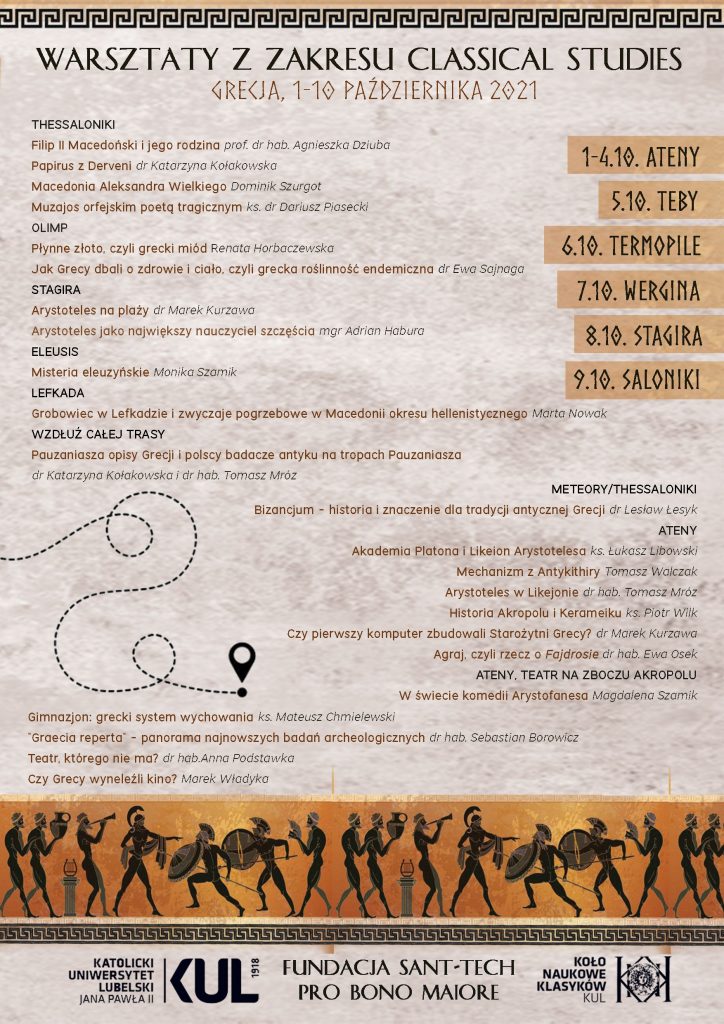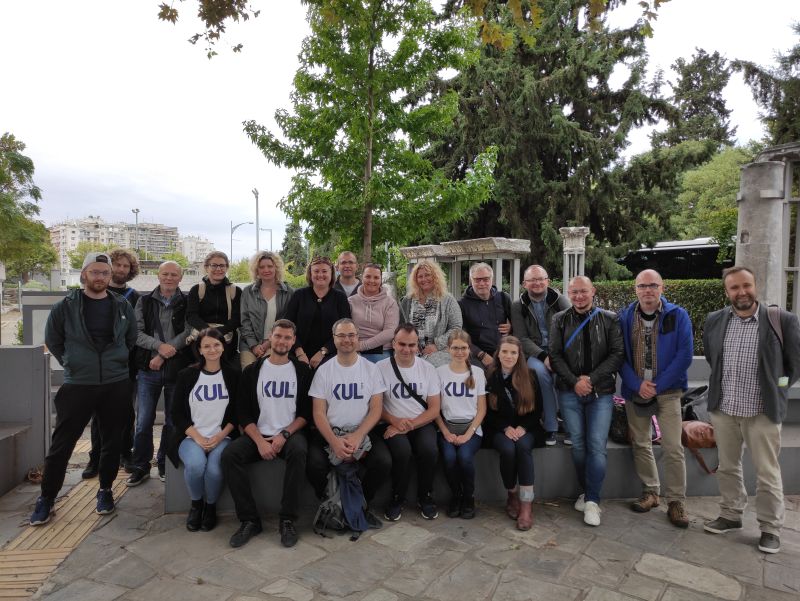Home » Posts tagged 'K. Kołakowska'
Tag Archives: K. Kołakowska
H. Jakubanis’ Empedocles in OA

Last year we announced publishing Polish translation of a Russian study by Henryk Jakubanis (1879-1949), originally published in Kyiv over a century ago, Empedocles: a Philosopher, a Doctor and a Magus, therefore there is no need to repeat all the information here. Suffice to say that the text was translated by Mariam Sargsyan and Adrian Habura, and the whole volume ends with an afterword by Katarzyna Kołakowska, a contemporary Polish expert on Empedocles.
The book can be purchased on the publisher’s website here. We are now, however, glad to inform that it is available in OA, via online repository of the University of Zielona Góra.
Henryk Jakubanis and His Empedocles
Empedocles: a Philosopher, a Doctor and a Magus. Materials for Understanding and Assessing Him.
It was the title of the most important work by H. Jakubanis (1879-1949)
originally published in Kyiv in 1906.

At the time of publishing this book the author was a young, 27 years old, lecturer and researcher at the St. Vladimir Imperial University of Kyiv. His area of competence and interest was established, it was ancient literature and philosophy with an emphasis on Greek philosophers. This volume consisted of two main parts: 1) Introductory presentation of Empedocles’ life, Sicilian society, culture etc., and finally – the sources of his philosophical thought. 2) Translations of the remaining fragments of Empedocles in verse and prose, with philological commentaries. It is the Jakubanis’ translation of the philosopher’s texts that won him recognition in the Russian-speaking world. Suffice to say that it is still in circulation today.
Jakubanis’s Empedocles had to wait for over a century to become finally available to Polish reading audiences. Until now this work had only been listed in bibliographies with no hint regarding its content. Two young Ph.D. students and researchers of AΦR group, Mariam Sargsyan and Adrian Habura, took their time to translate it from pre-reform Russian into well readable contemporary Polish. With their introduction the book was published as volume 3 of the book series published by Marek Derewiecki. Naturally, only Jakubanis’ own text was translated into Polish, for there was no need to re-translate his Russian renderings of Greek philosophical poetry. All the more so that Polish readers have a complete translation of Empedocles’ fragments by Katarzyna Kołakowska, a researcher from Jakubanis’ beloved Catholic University of Lublin.

It should only be added that the book is accompanied by an afterword by Kołakowska and it is available on the publisher’s website here.

This book is one of the results of the research project funded by National Science Centre on Henryk Jakubanis (1879-1949) as a classics scholar and historian of ancient philosophy.
AΦR at Classical Studies Workshop in Greece

Two members of AΦR Group, together with an AΦR friend, took part in Classical Studies Workshop in Greece. This tour event took place in the first ten days of October and was organised by The Sant-Tech Foundation in co-operation with Catholic University of Lublin (KUL).
It was an unforgettable tour of Greece from Athens to Thessaloniki, including Delphi, Marathon, Meteora, Pella, Stageira and many more places of archeological interest, many of which being extremely important for philosophers and historians of philosophy, e.g. Plato’s Academy, Aristotle’s Lycaeum, ancient Stageira or Nymphaeum in Mieza. The whole stay and the journey were carefully planned by Katarzyna Kołakowska and Lesław Lesyk (both of KUL and Sant-Tech Foundation), who smoothly adapted the workshop’s schedule to unexpected conditions.
The chronological order of the papers delivered by participants from Zielona Góra is: 1) Was the First Computer Designed by the Greeks? (M. Kurzawa, at the footsteps of the National Archaeological Museum of Athens; third from the left in the photo below). The speaker focused on the history of research on the Antikythera mechanism, which is preserved in this Museum, and its unbelievable construction. 2) Aristotle in the Lycaeum (T. Mróz, in the archeological site of… Aristotle’s Lycaeum; first on the right) discussed briefly the excavations in this location and presented the outlines of the history of the Philosopher’s school.

Due to unfavourable weather conditions the following presentations were delivered en route to Thessaloniki, that is, on the bus: 3) Aristotle on the Beach (M. Kurzawa) was a paper devoted to Aristotle’s works in natural sciences and focused on his anecdotal scientific curiosity which gave rise to his theories, which still amaze us to this day. 4) Aristotle as the Greatest Teacher of Happiness (A. Habura; second from the left in the photo). The speaker presented the most essential Aristotle’s instructions on achieving happiness from the Nicomachean Ethics and highlighted their universal character, which was additionally substantiated by the studies of W. Tatarkiewicz, a recognised Polish historian of philosophy and ethician, on the same subject. 5) Polish Historians of Philosophy and Classics Scholars on Their Journeys to Greece (T. Mróz). This was rather a loose speech than academic paper and it presented three Polish scholars (W. Dzieduszycki, T. Sinko, W. Witwicki) and their memories of visiting historical places, some of which at the times of their journeys looked differently then they do today, and their observations on modern Greeks, which in turn appear sometimes to tally with today’s impressions of Greece.
Recent commentaries